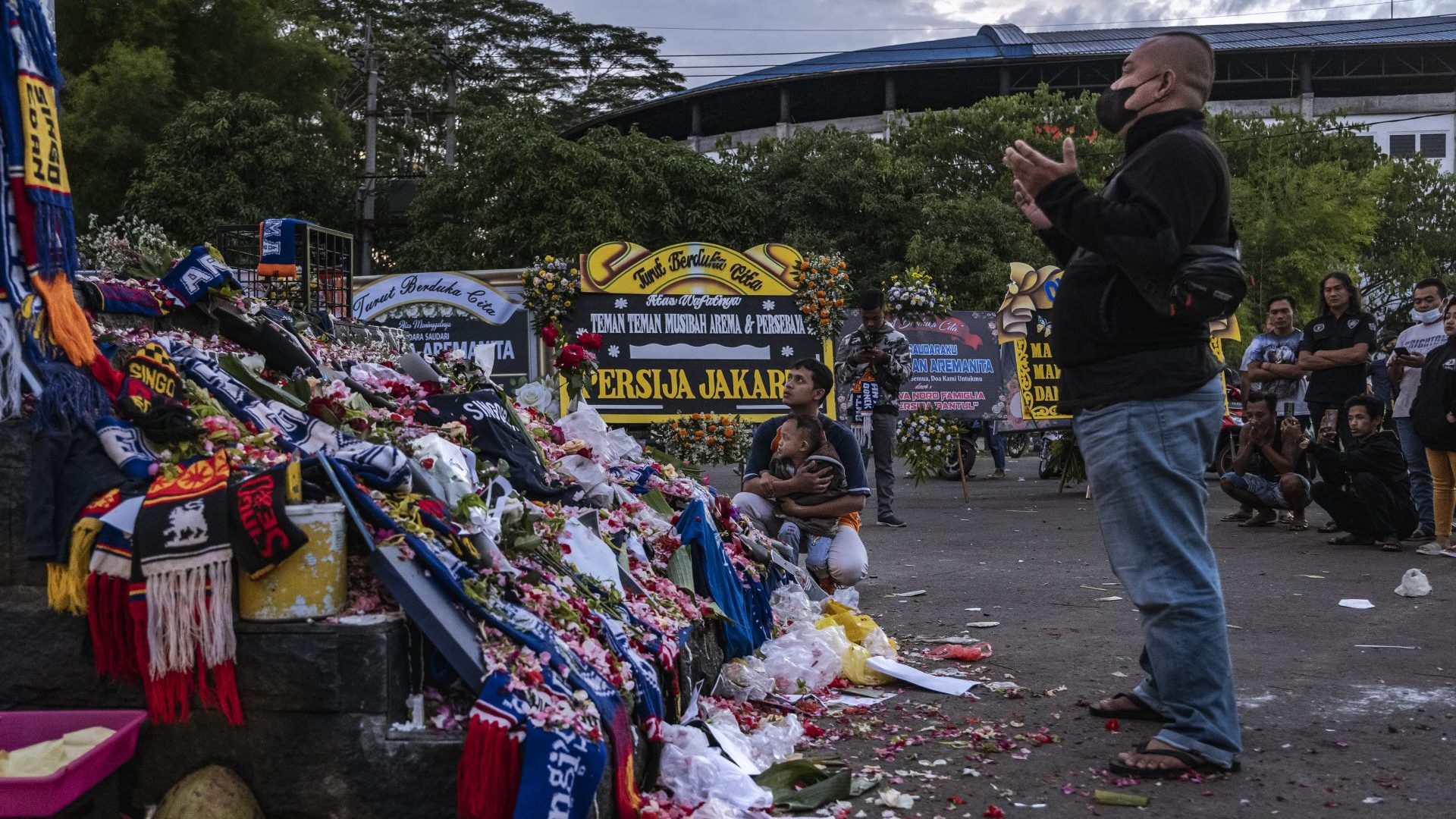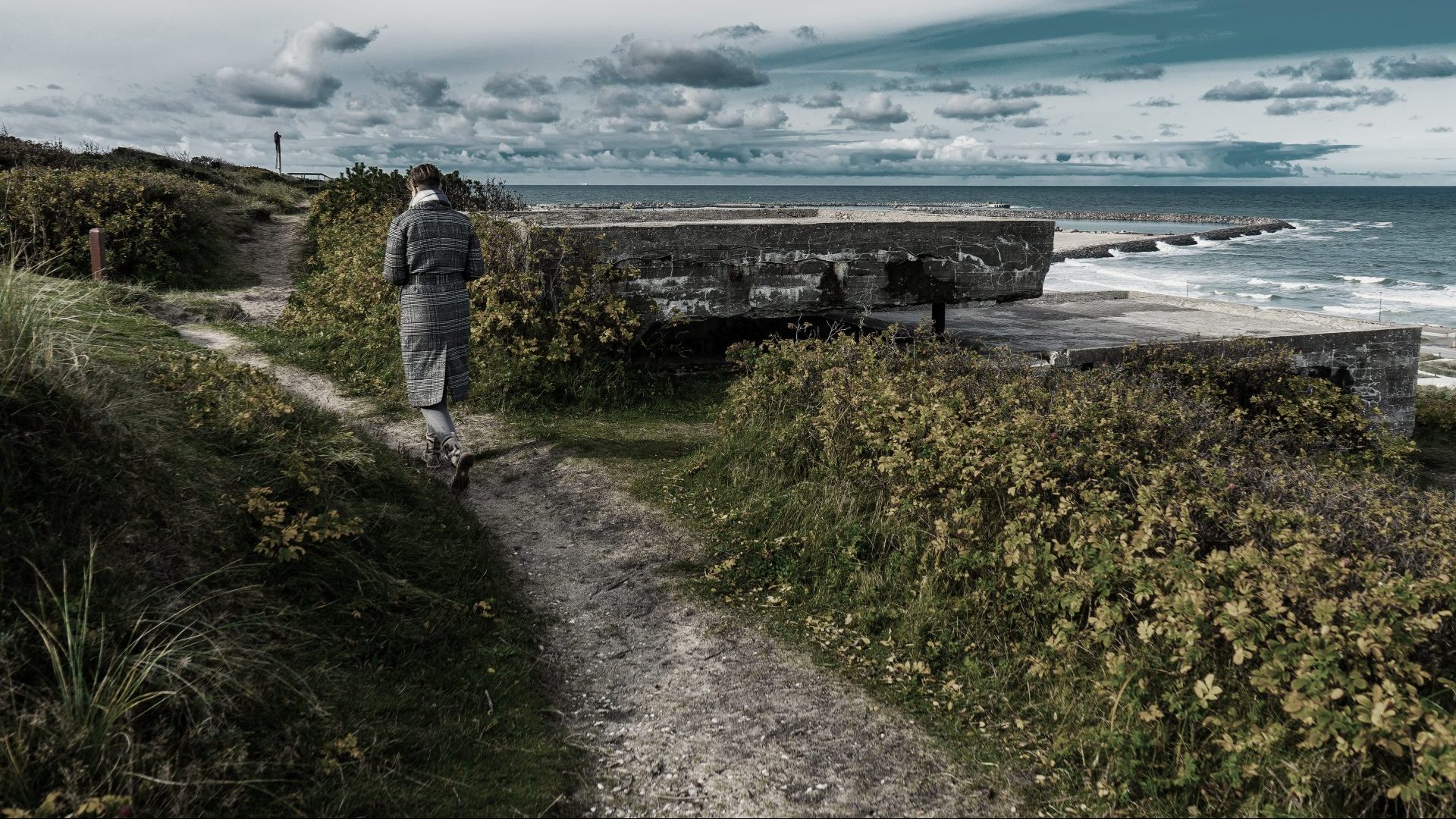Will football never learn? For many, many thousands of us, the harrowing
flashbacks to witnessing mass deaths at Heysel and Hillsborough need no
more reminders that the stadiums are potential deathtraps.
The nightmare recurs again and again. In Paris this spring, Liverpool
supporters were pepper sprayed outside the gates of the Stade de France simply for following their team to the Champions League final. The politicians, police and Uefa attempted, without a shred of credibility, to blame the fans simply for being there. Those fans, young and old, were victims of chaotic, ill-disciplined, weaponised policing.
Paris will host the 2024 Summer Olympics.
Last Saturday, at least 125 fans died and many others suffered life-changing injuries after a stampede that occurred when Indonesian police teargassed fans who had run on to the pitch after Arema FC lost 3-2 at home to their rivals Persebaya Surabaya. From Zürich, Fifa president Gianni Infantino issued the sombre message that this was a “dark day for all involved in football… a tragedy beyond comprehension.”
Yet football’s tragedies are not remotely incomprehensible. They recur with dreadful regularity, and the authorities (both sporting and policing) should not be allowed to wash their hands of responsibility.
Indonesia is the next stop on Fifa’s money-spinning schedule after this winter’s World Cup in Qatar. Next May and June, six stadiums in the country
are set to host the 24-nation Fifa Under-20 World Cup. England, France, Italy, Israel, Slovakia and the United States of America are among the nations qualified for that tournament, which had to be postponed in 2021 because of the Covid pandemic.
The death certificates about to be written in Indonesia will doubtless be
familiar to what we, in football, are grimly accustomed to. We are scarred,
still, by the inquests into Hillsborough and the Ibrox stadium disaster, now
over 50 years ago, and those awful words “compressive asphyxia”. It means people, from infants to the elderly, having the oxygen suffocated out of them in the panic to get away from overcrowded situations.
We already know that the youngest victim in the stadium last Sunday was five years of age. And we hear as well as read the early shots in the blame game. The East Java police chief broadcast on Sunday: “It got anarchic. They (the fans) started attacking officers, they damaged cars.”
Two officers, he said, were among the dead. That police chief, Nico Afinta, added: “We would like to convey that not all of them (the Arema fans) were anarchic, only about 3,000 who entered the pitch.”
Mobile phone footage captured the all-too-familiar scenes. The rush of angry fans on to the pitch, the police opening fire with teargas and truncheons, the terror as fans scrambled over fences and were sucked towards an exit gate. Some were trampled in the rush, the breath forced out of them where they lay.
And in this day and age, citizen journalists armed with mobile phones provide graphic eyewitness accounts from within the catastrophe. Muhamad Dipo Maulana, 21, told BBC Indonesian that when the game ended “a few” Arema FC fans were angry at their team for losing the match. “They went on the pitch to remonstrate with the players,” he said. “They were intercepted by police and beaten”.
He described the build-up of police with dogs and shields, and then the arrival of soldiers. Then the teargas, more than 20 rounds of it, “like bang,
bang, bang, continuous and fast, directed to all the stands.”
Maulana saw people panicking and trampling one another as they tried to get out of the stadium. The police also talked of far too many people attempting to flee through one or two narrow exits, and being crushed by
the weight of their numbers at those gates.
All too graphic, too horribly, unforgettably reminiscent of Leppings Lane in Hillsborough where thousands too many Liverpool supporters had been herded into one steel-fenced stand behind a goal. And their panic, their attempt to escape asphyxia through chronic overcrowding due to police error. Attempting to scramble up the fencing that authorities erected to prevent pitch encroachment during the hooligan era. Innocent spectators
sucked towards the one woefully insufficient narrow gate between that pen and the playing field.
Those of us who were metres away became enforced onlookers to death through negligence. And some of us saw it at close quarters in the Heysel
stadium in Brussels where, again, we had no way to intervene to save lives.
Once more, we were grim witnesses to bodies piled up in impromptu morgues outside the “sporting” arena.
Never again, we prayed. Never again, promised football, police, governors,
and particularly the people – mostly men – who mouth condolences and
promise to do all they can. Then they move swiftly on to the next big tournament, next big pay day.
The Hillsborough Survivors Support Alliance on Merseyside repeated their
now familiar refrain last Sunday. “No-one should go to a match and not go
home.”




